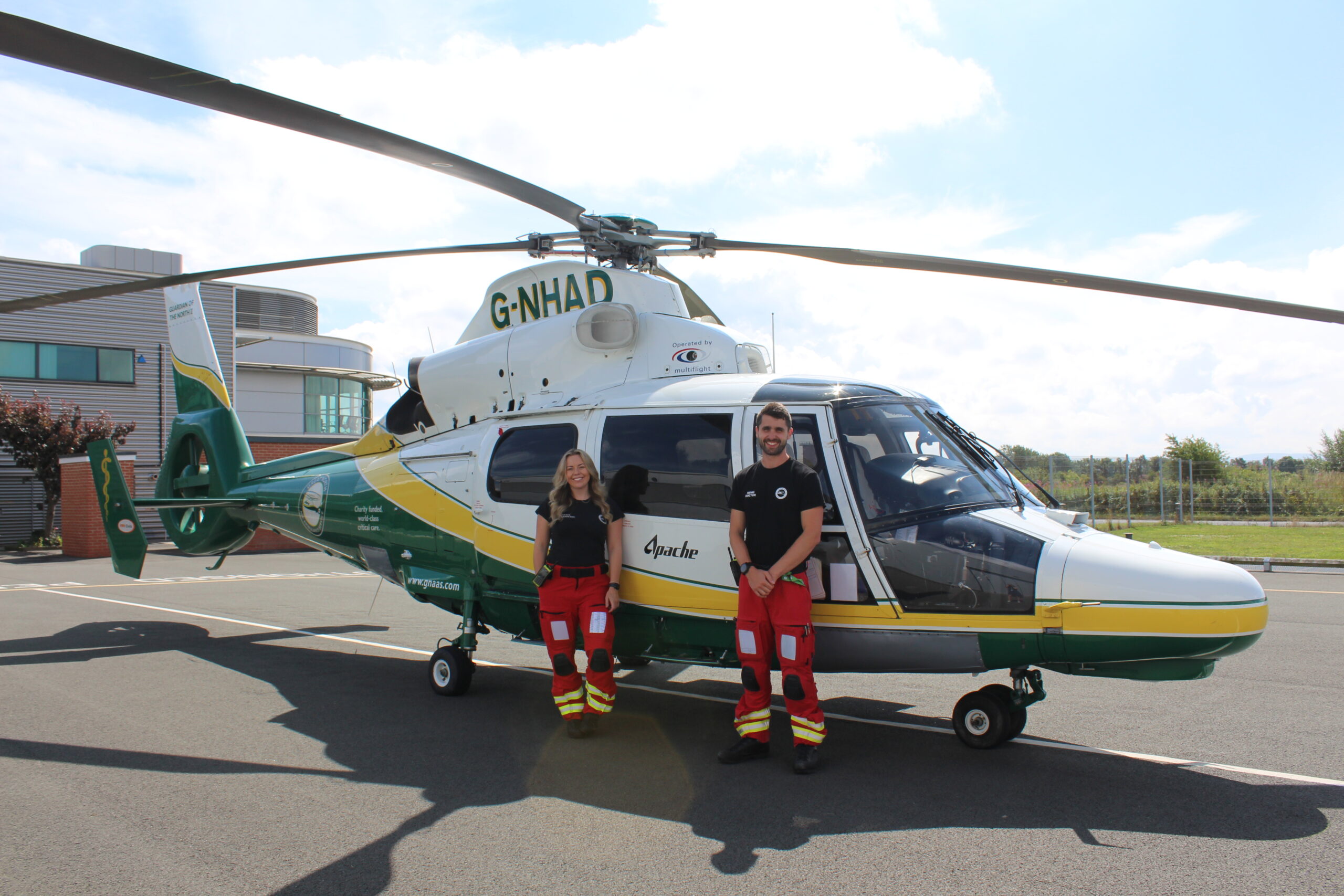
Apache is pleased to announce a new U.K. community partnership with the life-saving Great North Air Ambulance Service (GNAAS).
GNAAS provides critical care to patients across the north-east of England, North Yorkshire, Cumbria and the Isle of Man, and around 30% of our U.K. offshore workforce live in those areas.
With a focus on community wellbeing in the areas where we live and work, we are driven to support local first responders and emergency services, and our partnership with GNAAS will help support the charity’s fuel costs.
The service provides life-saving, critical care services by air and road across the area, rescuing thousands of severely injured or ill patients every year.
In 2024, the team had 2,083 call outs and rely entirely on charitable donations.
The Apache logo is now proudly displayed on one of the helicopters, the Guardian of the North II, which is part of the fleet available 365 days a year to save lives across the north of England.
“Community wellbeing is one of our key pillars and we support partners who align with our values to address the acute needs in the areas where we live and operate,” said Greg McDaniel, senior vice president, international assets at Apache. “Supporting local first responders and emergency services ensures that everyone can benefit from receiving critical care in their time of need. We are honored to support GNAAS as their ability to respond rapidly to incidents, large and small, can make a real difference in life threatening situations.”
Ben Sisson, CSR and philanthropy specialist at GNAAS said: “We’d like to say a massive thank you to Apache for their incredible donation. Seeing their logo on the helicopter is a huge stepping-stone for our Corporate Partner scheme, and we’re looking forward to building a positive working relationship with Apache.
“As a charity, we do not receive government funding and need to raise £9.3m a year to remain operational, which is a huge task.
“The donation from Apache is greatly appreciated and we hope they feel proud knowing that their contribution will enable our critical care teams to continue helping severely ill or injured patients across the region.”